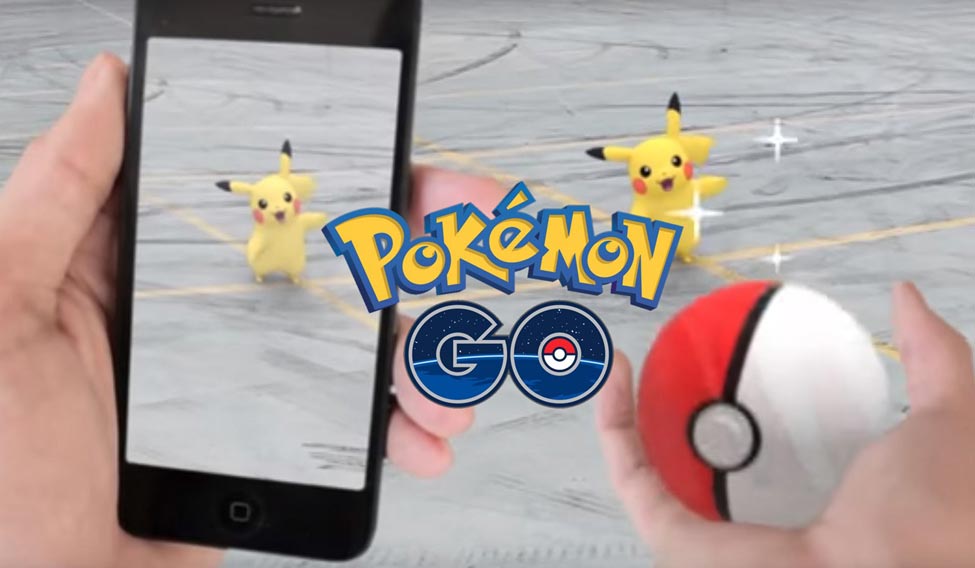If you have not heard of Pokémon Go yet, then you are probably living under a gigantic rock. Pokémon Go is an augmented reality based video game, which uses GPS to get you to hunt and catch Pokémon creatures in your neighbourhood. Just like the original Pokémon, Pokémon Go has become an obsession with people taking to the streets, noses buried in their phones, waiting for the rustle of leaves that implies a Pokémon that's close at hand.
Within minutes of the game's release, a player fell in a ditch and suffered fractures on his foot. Another player walked straight into poles—at least four times and a waitress bruised her shin as she tripped over a cinder block while playing Pokémon Go. In another case, the chase for a Pokémon led a teenager to a dead body in a river. Interestingly, Pokémon creatures have been popping up in weirdest and inappropriate places. While a Squirtle appeared on top of a coffin at a funeral, someone's house was tagged on Pokémon Go as a Gym, a Pokémon battle place. Also, a man caught Pidgey as his wife was giving birth. To top it all, website developers are coming up with local online portals that guide players to rare or exotic Pokémon in their vicinity.
In the latest turn of events, a coding error gave the game-developer Niantic complete access to players' emails, forcing them to make emergency fixes on Pokémon Go.
It all began with Pokémon.
Born in 1996, Pokémon video game series, conceived by Satoshi Tajiri for Game Boy, took over the world soon after its release and blew up into a media franchise and merchandise monster much like Hello Kitty and Tamagotchi. Pokémon is the short form of the Japanese title Pokémon Monsters. The players, or Pokémon trainers, have to collect all Pokémon fictional creatures found in this virtual world of pocket monsters. When a trainer comes across a wild Pokémon, he has to throw a special tool called the Pokéball at the creature to capture it. Once captured, the Pokémon is under the trainer's ownership and will obey the trainer's orders.
Pokémon's founder Tajiri got the idea from his interest in catching insects, a popular pass time in Japan. With its iconic catchphrase, “Gotta catch 'em all”, Pokémon went on to become a worldwide phenomenon. It inspired numerous feature films and an anime TV series featuring a Pokémon trainer Ash Ketchum. In 2015, Pokémon merchandise generated revenues worth $50 million. Pokémon began with 151 creatures and has since expanded to 722. While Snorlax, Bulbasaur and Psyduck have been very popular, Pikachu, a chubby yellow Pokémon, went on to become the brand ambassador.
So what's the brouhaha about Pokémon Go?
This Nintendo-Niantic game opens up an alternate world in the real world. As you turn on the app/game you could be sitting on your couch and a Pidgey might jump up behind the TV. Or, a Rattata could be right in front of you while you are waiting for your train. There are in-app Pokéstops—spots where you obtain items like Pokéballs, Potions or Lure. In the real world, these could be anywhere—churches, coffee stops, public toilets or even the near-by supermarket. The Pokémon creatures exist in their natural habitat, which means to find a water-type Pokémon you need to be around a water body. A walk into the woods would get you a bug-type Pokémon. If you are going out hunting at night, you're sure to sight nocturnal Pokémon. However, encountering a Zubat in the middle of a dark street may not be a pleasant experience, to be honest.
Chasing down these pocket monsters has also turned into the new fitness fad. Players have claimed that Pokémon Go has helped them lose weight and charge up their social life as it needs you to go out of your home and walk for miles. Reportedly, going outside and spending time outdoors with like-minded trainers (read fellow-smartphone users looking for Pokémon) are also doing wonders to people's mental health.
On the other hand, there has been reports of armed robbers luring prospective victims to isolated locations using the geolocation feature on Pokémon Go. This happens when in a particular level in the game, players have an option to assemble at public landmarks to join teams and battle. A police station was featured as a Pokéstop and the officials had to put out a statement asking Pokémon trainers to not go in. Police officials have put out cautionary messages urging players to not travel to unfamiliar or private places in search of Pokémon. Players have been urged to Pokémon with safety and not to Pokémon behind the wheels. In what can be termed only as absurdity of the times we live in, the Holocaust Museum and even the 9/11 Ground Zero memorial have been tagged on Pokémon Go as Pokéstops.
Pokémon Go's popularity has already surged ahead of Facebook, Instagram, and Snapchat, has been downloaded more times than the dating app Tinder, and is all set to break Twitter in the number of daily active users on Android devices. It has also come on top of iTunes store’s free apps. Many people from places where Pokémon Go is not available yet have found third-party apps to get the game and have been infected with Malware. Nintendo's market value has skyrocketed, Niantic’s servers have crashed. And all this started over a weekend.
So what’s the bad news for the biggest augmented reality game in the world right now? It drains the battery like crazy. But that does not seem to be affecting ardent Pokémon Trainers who are out and about on a hunt for Jigglypuff.
Pokémon Go is currently available on iOS and Android, in the US, Australia and New Zealand. According to the Wall Street Journal, Pokémon Go will come to Europe and Asia in a few days.





